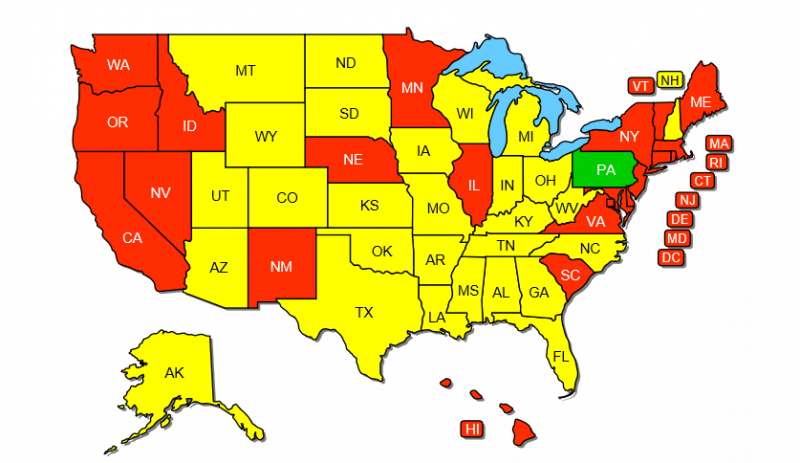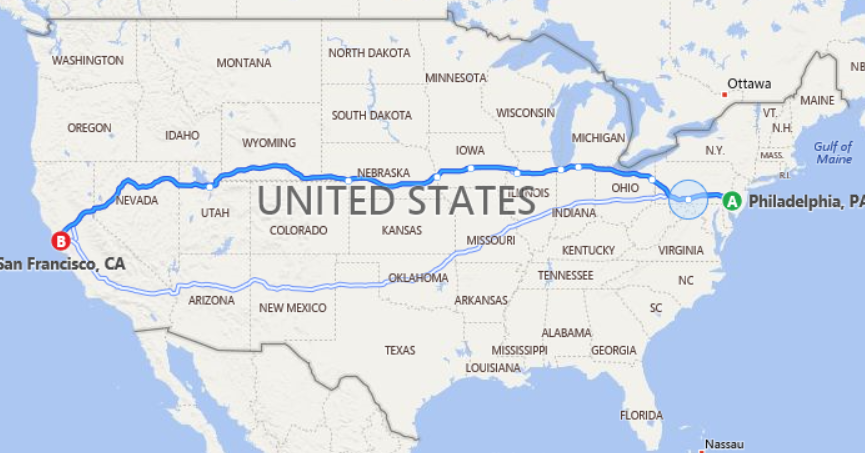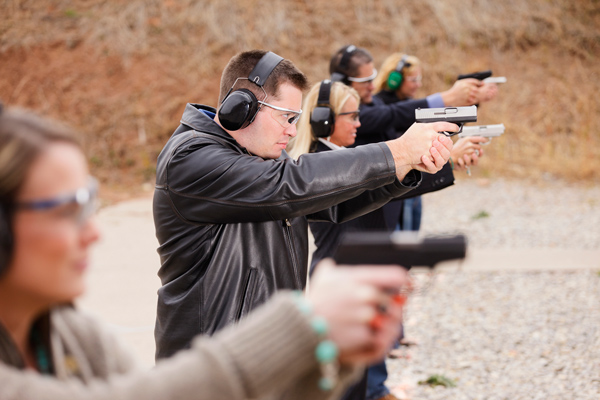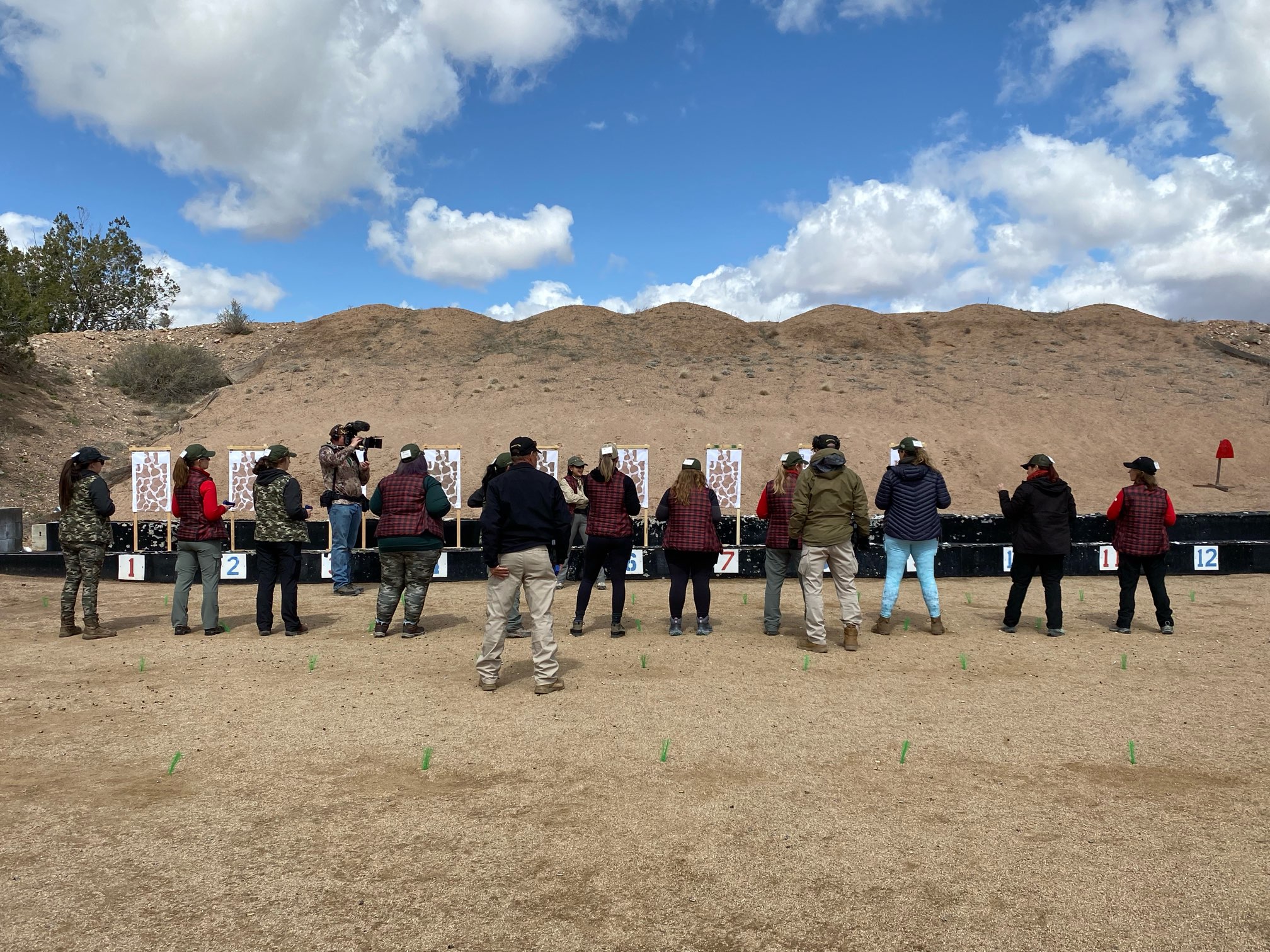Your ability to carry a personal firearm is the only Constitutional Right that varies from one state to another. You can not get in trouble for expressing freedom of speech or visiting the church of your choice while on vacation, but bring a firearm to protect your family and jail may be your last stop. Whether this is right or not is an argument for another day, it is more important that you know how to avoid becoming a statistic today.
Every smart CCW holder knows they carry a firearm not to look cool or macho, but because you never know when or where trouble will threaten you, your family or an innocent bystander. You never know when that firearm can save a life. But, if you travel you may find your firearm gets you into more trouble than it gets you out. Knowing the rules concerning possession of a firearm in the state(s) you are visiting or passing through is just as important as knowing how to use that firearm itself.
Crossing the Wrong Line
Americans do not give much thought to borders, they are simply invisible lines that divide one state from another but rarely mean anything to the traveler. Except if you are carrying a firearm. Unlike your driver’s license, which is automatically accepted by other states once issued by your home state, a CCW Permit is often limited in terms of reciprocity. Carry a firearm into the wrong state, even if stored in your vehicle or permitted at home, and you can find yourself facing felony charges. When traveling it is important to understand just where you can or cannot go.
1. Know the rules of the state(s) you will be visiting, including those you will be passing through. This includes what each state considers legal carry (concealed, open or in vehicle) and whether or not you need to declare that firearm if stopped by law enforcement.
2. Do not believe that having a firearm that is legal in your home state, or even a CCW, will automatically protect you from prosecution. Vermont is currently the only state that does not restrict the carrying of firearms regardless of which state you call home. All 49 other states have a variety of agreements and requirements when it comes to non-residents who wish to possess a firearm within their borders.
Shop Glock 26 Holsters
3. You also need to know that even if you can legally carry within a specific state there are still locations within that state that may be off limits. Government buildings and schools are almost always off limits, but some jurisdictions also extend this prohibition to parks and other public recreation areas. Plus, there are also states that allow private businesses to also restrict both open and concealed carry on their property.
4. Finally, you need to be aware of any equipment restrictions that may be in place. A growing number of states have limitations in place on the amount or type of ammunition that can be carried or even the types of firearms or accessories that are allowed.
Image: PA CCW Reciprocity Map

Commercial Travel
Most people are aware that it is not possible to board a commercial airliner with a concealed firearm, but it is attempted at a surprising rate. What most travelers probably do not realize is that similar restrictions exist when traveling by rail or bus as well.
Although commercial airlines and AMTRAK rarely allow concealed carry or firearms in carry-on luggage, they do permit firearms to be transported in checked luggage. However, there are a number of very strict rules that must be followed, and it is best to check with the individual carrier and the TSA or AMTRAK prior to booking your trip.
Unfortunately, if you are traveling by bus you will probably need to do so unarmed. Although some local lines may have more relaxed restrictions, the majority of major bus lines strictly prohibited firearms even in your checked baggage.
Shop Glock 19 Holsters
Conclusion
Although there may come a time when legal carry of a firearm will be permitted shore to shore that is not the case today. Until then know the rules or risk unexpected travel trouble.




